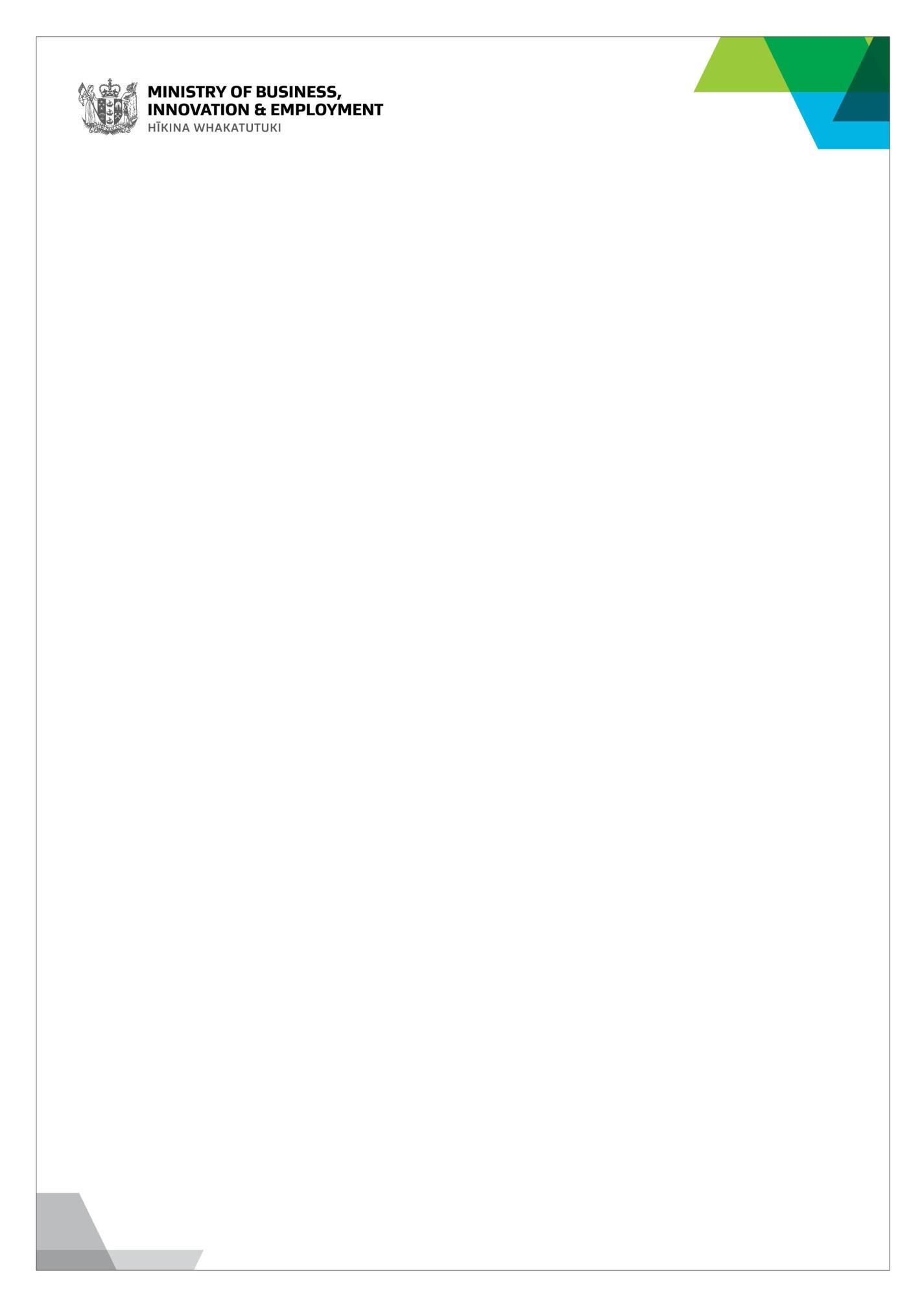
8 March 2022
Ref: DOIA 2122-1503
Jack Hulls
[FYI request #18243 email]
Dear Jack Hulls
Thank you for your email of 19 January 2022 to Hon Chris Hipkins, Minister for COVID-19 Response
requesting, under the Official Information Act 1982 (the Act), the following information:
I am writing to get statistics on people who have used MIQ.
Media make it seem that millions of people are stuck overseas, but at the same time we know of
people who have crossed the boarder more than once during the pandemic.
Can you please provide any numbers regarding people who have used MIQ more than once during
the pandemic.
For example: X percentage of people in latest MIQ lottery had used MIQ in last 12 months.
Or the most frequent user of MIQ has travelled X times since March 2020.
Happy to take whatever data you have. [sic]
On 28 January 2022 you were notified that your request was being transferred to the Ministry of
Business, Innovation & Employment (MBIE) under section 14(b)(ii) of the Act.
We used data sourced from the Managed Isolation Allocation System (MIAS) on 8 February 2022 to
respond to your request. The data is for all MIAS registrations with arrival dates in MIQ between
3 November 2020 and 31 January 2022. It became compulsory to have a MIAS voucher before entering
New Zealand on 3 November 2020, so this is the start date for our data. Please note that data published
on the MIQ website showing the number of people who have returned to New Zealand is for arrivals
since 26 March 2020, so is for a different timeframe than the data supplied in this response.
We have used passport numbers to represent individuals, with each unique passport number being
counted as a unique individual. This is the closest approximation available for the number of people who
have used Managed Isolation and Quarantine (MIQ) more than once during the pandemic, and for the
number of times the most frequent users have entered MIQ. Passport details are entered into MIAS by
the passenger and are not externally validated. Some MIAS files do not contain any passport details.
These factors affect the accuracy of the information we are supplying.
Every effort has been made to remove duplicates; however, the data may contain some duplicates.
Passport numbers have been used to provide this information, therefore individuals who used more than
one passport during the reported time have not been accounted for.
Please note that a proportion of voucher holders do not make it to New Zealand on their intended arrival
date. This occurs, for example, if a traveller misses a flight or is unable to board due to a positive pre-
departure test. Therefore, the number of MIQ vouchers does not directly show the number of times
travellers have entered MIQ.
The total number of unique passport numbers in the period between 3 November 2020 and 31 January
2022 was 146,333. Of these, 2,971 unique passport numbers were recorded as holding more than one
MIAS voucher in the period. This is 2% of the total number of unique passport numbers recorded as
holding more than one MIAS voucher during the period. Or, alternately, 98% of passport numbers held
just a single MIAS voucher.
In addition to the 2,971 passports identified as having held more than one MIAS voucher, there were
3,254 vouchers that did not have an associated passport number. Some of these 3,254 MIAS vouchers
may have been issued to a traveller who had also received a MIAS voucher that has an associated
passport number; hence they could have entered MIQ more than once, but our data does not allow us to
confirm that.
The largest number of MIAS vouchers recorded against any single passport number in the period between
3 November 2020 and 31 January 2022 is eight. Please note the caveats listed above in relation to this
data. The number of vouchers issued to a single passport number does not necessarily equate with an
individual entering MIQ. It is only indicative of the number of MIAS vouchers issued. We do not record
whether an issued voucher was actually used.
Over time New Zealand’s border settings have changed. This has impacted on our data sets. At various
times there have been quarantine free travel (QFT) zones with different Australian states and Pacific
nations. Travellers who entered New Zealand under a QFT did not necessarily register their passports in
MIAS, so may not be included in the data above.
During the period 1 July 2021 to 31 January 2022, there were no QFT zones in operation. Consequently,
we can provide additional information for this time period.
MIAS Vouchers issued against unique passport identifiers 1 July 2021 to 31 Jan 2022
MIQ STAYS
No. of people
% of total people with this
(Represented by MIAS
(Unique passport identified
number of allocations
allocations – see note 1)
in MIAS – see note 2)
(see note 3)
One allocation (voucher)
66,913
99.43 %
Two allocations (voucher)
375
0.56 %
Three allocations (voucher)
8
0.01 %
Total
67,297
100.00 %
Notes:
Note 1: MIQ STAYS (Represented by MIAS allocations) is the number of unique passport
numbers that have held one, two etc vouchers for arrival in MIQ during the period.
Note 2: No. of people (unique passport identified in MIAS) is Unique passports identified
in MIAS.
Note 3: % of total people with this number of allocations is “No. of people (unique
passport identified in MIAS.
The largest number of MIAS vouchers recorded against a single passport number in the seven-month
period between 1 July 2021 and 31 January 2022 is three vouchers – just 0.01% of the total vouchers
allocated.

MBIE has no business need to collect information on the percentage
of people in [the] latest MIQ lottery
[who] had used MIQ in [the] last 12 months. The method that a traveller used to gain a MIAS voucher is
not a piece of information we need to operate the system.
Moreover, information that might indicate which lobby a voucher was allocated in is not recorded in an
accessible format. Therefore, we refuse this part of your request under section 18(f) of the Act as the
information requested cannot be made available without substantial collation.
You have the right to seek an investigation and review by the Ombudsman of this decision. Information
about the process is available at www.ombudsman.parliament.nz or freephone 0800 802 602.
Yours sincerely
Russell Burnard
General Manager National Operations Services
Managed Isolation and Quarantine

